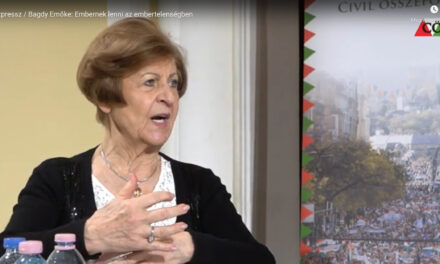"Almost 4.8 million people work in Hungary. The current transformation of the kata regulation affects 4.5 million people favorably and 300,000 negatively. I'll tell you how and why in three minutes," wrote László György, State Secretary of the Ministry of Culture and Innovation, on his social media page.
"The kata, that is, the itemized tax for small taxpayers, was created by the Orbán government in 2012 specifically for those jobs in which a single-person business provides services to many, many people every day. This includes the hairdresser, the manicurist, the eyelash specialist, and I could list more. The measure worked, because thanks to the kata, many people started paying taxes, instead of their previous blackouts, they started contributing to the common, thereby becoming insured. Since then, they have been able to use health care free of charge and have also become entitled to a pension. And for those who have paid their taxes honestly, their tax and bureaucratic burdens have been significantly reduced," he explained.
According to László György, as long as the kata whitened the economy, it benefited all Hungarian citizens, but from the point when it started to covertly replace entrepreneurial activity or employment, it actually produced more and more hitchhikers, and the silent majority is surely paying for it.
"The tax burden of the silent majority has gradually decreased since 2010. If, in 2009, the employer wanted to increase the net salary of his employee earning an average wage by HUF 3,000, it cost him HUF 10,000, because the state deducted HUF 7,000 in the form of taxes and contributions. Today, on average, the state takes HUF 4,100 from the wage increase and HUF 5,900 remains in the employee's account. If we are talking about the head of a family with three children, the state takes HUF 1,800 and HUF 8,200 remains. The policy of tax reduction was mostly helped by the policy of job creation. In 2010, we set ourselves the goal of expanding employment in Hungary by one million in ten years, and we achieved this goal, taking all factors into account. This results in more people being taxed, so they have to pay proportionately less. It can be seen that the employee who became a blacksmith contributed to the reduction of taxes," explained the state secretary.
But what about those who hid work behind kata? They typically replaced the 41 percent tax burden with an average tax burden of between 3.3 and 10 percent, thereby harming the 4.5 million workers for whom their employers pay taxes fairly.
"For them, the regulation now offers an intermediate solution. They can choose flat-rate taxation, which corresponds to an effective tax of 20-24 percent. Moreover, if they still have the time and energy to work as a tour guide as an employee, say a teacher, then they enjoy a tax exemption of up to two million forints, which means they are even better off than with the kata! They only have to pay the 20 percent effective tax on their income above two million forints. By the way, their pension expectations also increase," he finally added.
Source and featured image: Magyar Nemzet












